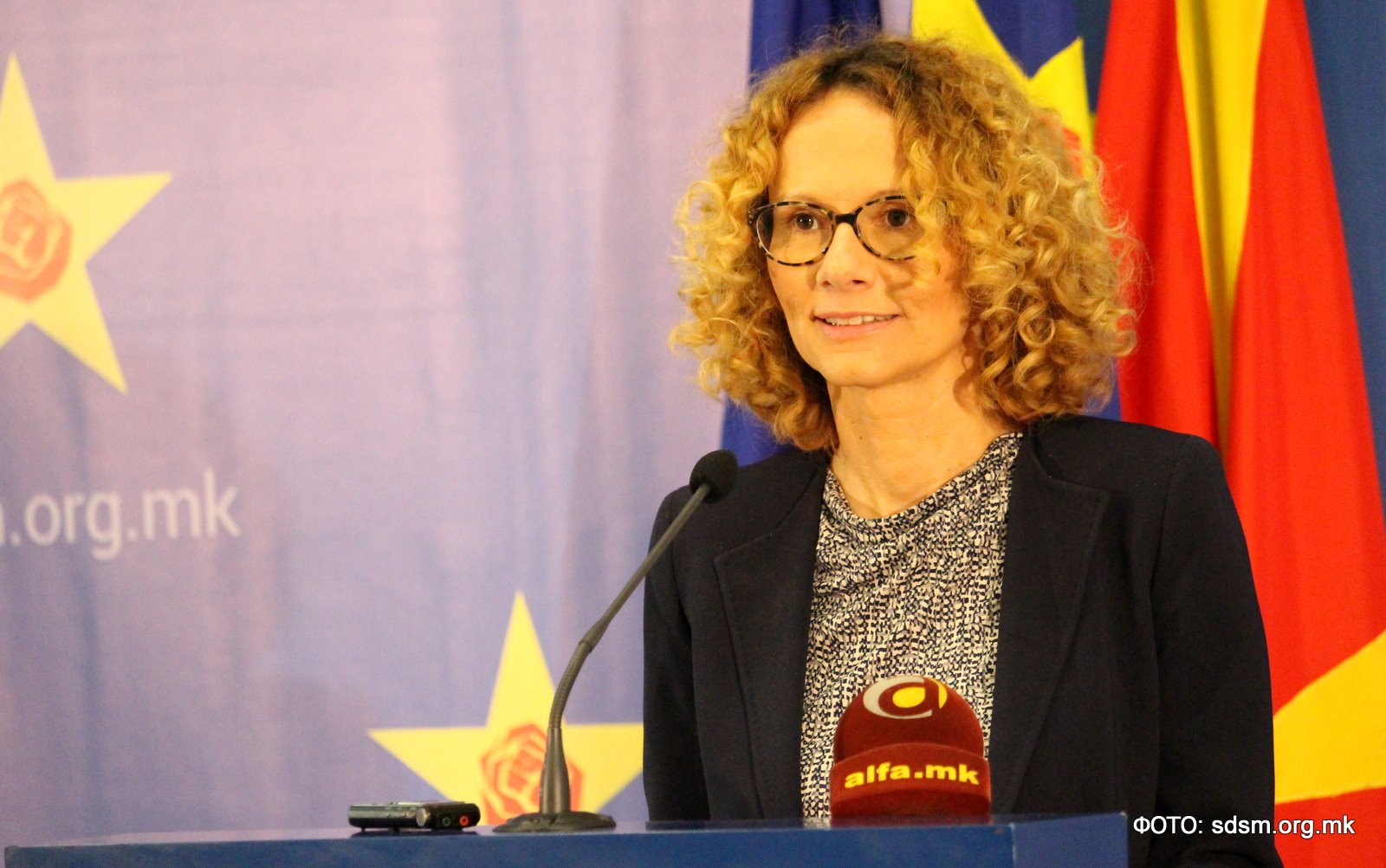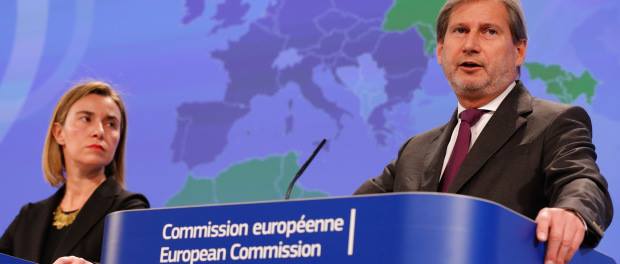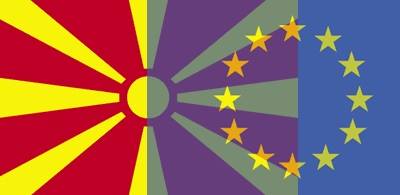“The Sun, too, is a Star” was the slogan of the campaign for the European integration of Macedonia launched by the Social Democratic Party (SDSM) in the early 2000s. The then Deputy Prime Minister of the Republic of Macedonia who was responsible for European integration, Radmila Shekerinska, together with SDSM, coined this slogan with the vision of societal cohesion as early as in 2003, as this was one of the prerequisites for “getting the Macedonian Sun (being in the center of the Macedonian flag) on the European flag”. Unlike many politicians from the Western Balkans, she never used nationalistic rhetoric to gain votes even though the 2001 insurgencies were still fresh. In 2005 Macedonia officially became a candidate of the EU and Shekerinska’s pro-European rhetoric seemed to have put the country on the right path towards peaceful coexistence for all of its ethnicities. The fact that she, together with her party, did not use nationalism as a tool to stay in power might have cost them their careers in 2006, since the government that followed after them ruled with overwhelming popularity for a whole decade behind the mask of an identity keeper of the Macedonian people.

The current President, Gjorge Ivanov, nominated by the nationalistic centre-right VMRO-DPMNE, finally fulfilled his constitutional obligation and gave the mandate to form the next government to the Social Democratic Party on May 17 after DPMNE had failed to form a governing coalition already in January 2017. In the four months in between, he made a mockery of the Macedonian constitution by not allowing the then main opposition party SDSM (which won 49 of the 120 seats in December’s elections) to coalesce with the Albanian parties. Mr. Ivanov articulated conspiracy theories about how SDSM’s coalition with the Albanian parties is going to destroy the country, since it will ostensibly lead to its federalization. This scaremongering strategy was revealingly created by VMRO even before the December elections, probably to detract attention from the major wiretapping scandal in 2015. This attempt to create a mass panic of federalization was facilitated by the various government-controlled nationwide media. Mr. Ivanov called upon the Macedonian people to “defend their state” by protesting on the streets, which resulted in the so-called bloody Thursday, where members of the Parliament were attacked by street protesters wearing masks who broke into the parliament building. One of the victims of this bloody Thursday was Shekerinska herself, who after the belated reaction by the state’s police had to seek immediate medical attention. This was also the case with another 5 MPs; one of them, the leader of the party Alliance for the Albanians, had to be hospitalized for a week.
But where is Macedonia on the path towards the EU now, 25 years after it sent its first representative to Brussels and 20 years after it signed the Cooperation Agreement with the EU? Even if SDSM succeeds in forming a government, VMRO’s rule for over a decade will have surely put a heavy burden on the next government.
First, VMRO, which according to an investigative journalist agency in Macedonia is the richest party in Europe (a claim which has never been denied by its correspondents), still owns many of the media agencies in the country, which it has used to denigrate the opposition for the last 11 years. Earlier this year, this resulted in Reporters without Borders listing Macedonia as the country with the least media freedom in Europe together with Belarus, Russia and Turkey.
Second, it is undeniable that VMRO with its propaganda in the mass media succeeded in mobilizing the tens of thousands of people on the streets, who chanted nationalistic slogans and stirred ethnic hatred. With its project of “antiquisation” called Skopje 2014, VMRO not only damaged the country’s economy, but fostered an “exclusive” identity for many Macedonian people (ethnic Macedonians amount to only 65% of the Macedonian population according to the latest population census of 2002). In a country of around 2 million people, one must not underestimate that more than 450.000 people supported VMRO in December’s elections, even after the revelation that chief party members committed atrocities of exorbitant proportions, such as an attempt to conceal a murder case.
Third, some high-profile politicians of one of the two major Albanian parties, DUI and DPA, have also been incriminated in the aforementioned wiretapping scandal, whereas the new Albanian parties, Alliance for the Albanians and BESA, have no political tradition and only appeared recently. This fact, together with the “legacy” of VMRO’s ethnically divisive projects and rhetoric, might also complicate the work of the new government.
Whereas the High Representative of the European Commission, Federica Mogherini, and Commissioner for European Neighborhood Policy, Johannes Hahn, welcomed Mr. Ivanov’s decision to give the mandate to Mr. Zaev, they again emphasized the importance of the full implementation of the Przino Agreement from 2015. Shekerinska’s words that “no integration in the EU is possible, without being able to integrate domestically” still resonate as strongly as they did in 2003.

After a decade of VMRO-DPMNE’s retrograde direction from the EU, Macedonia’s readiness for EU accession of Macedonia is debatable, but with Shekerinska’s zeal and dedication for EU and NATO integration of the country, one can be an optimist that Macedonia will get back on its European path soon. One can hope that the negative remarks made by the 2015 and 2016 reports by the European Commission on EU accession of Macedonia will be addressed well by the new government, and that the faith Romano Prodi, then president of the European Commission, had in the early 2000s that Macedonia would soon become a member of the EU will be restored by Brussels.


Pingback: Einladung: Vortrag „Die politische Krise in Mazedonien“ – Junge Europäische Föderalisten